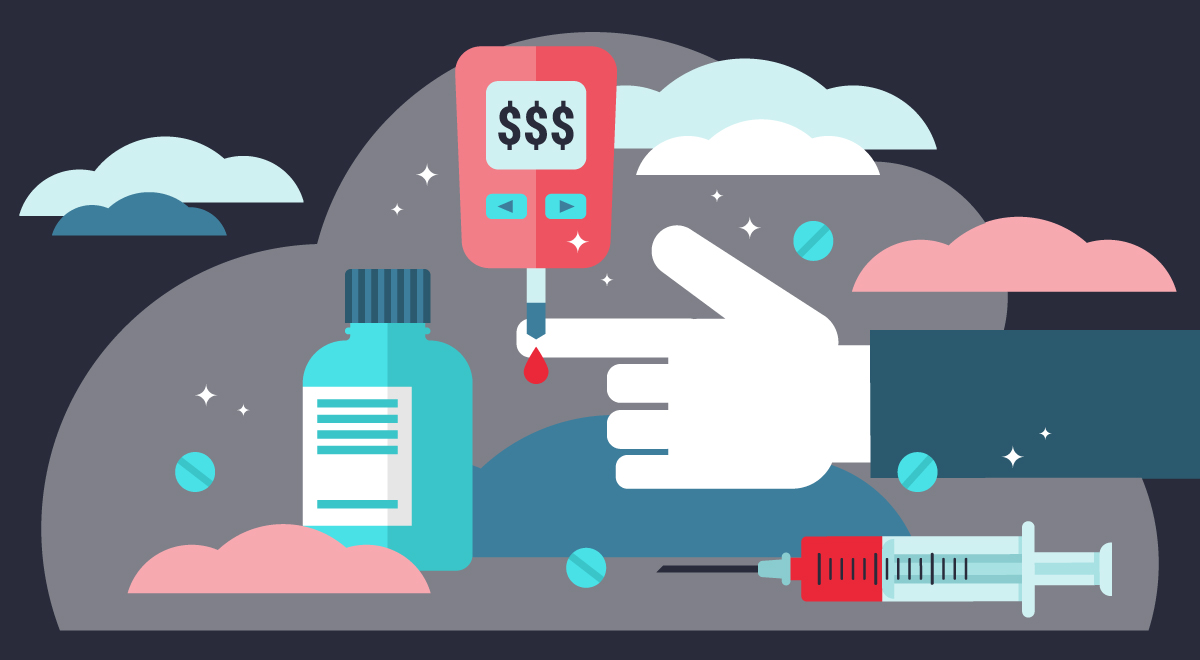Altarum Releases Policy Roadmap for Making Insulin Affordable
September 10, 2020

Ann Arbor, MI — How did insulin, a life-saving therapy for patients with diabetes, become unaffordable for millions of Americans and what can policymakers do about it?
A new report from Altarum answers this question and provides a detailed set of policy proposals to make insulins affordable to patients and payers through federal regulation, market reforms, and direct government action.
The need for affordable insulin is clear—US insulin prices are the highest in the world and have grown dramatically over the last 20 years, leading to one in four diabetic patients’ rationing insulin and taking less than their doctor prescribes.
Concern about affordability has even pushed insulin to the national political stage, figuring prominently in the Democratic presidential primary earlier this year and emerging again last spring when the White House pivoted from the Covid-19 response to announce a plan to reduce insulin co-payments for Medicare beneficiaries. Yet despite this attention, little has been implemented to fully address affordability for patients and overall costs.
To guide policymakers in addressing the problem in the near and long term, Altarum has developed a policy roadmap around three objectives:
Making insulin affordable to patients. Because insulin therapy is a form of high-value care that should be encouraged and that patients are unlikely to overuse, cost-sharing for insulin should be eliminated for insured patients by modifying Medicare Part D and Medicaid and by requiring private insurers to eliminate cost-sharing for at least one insulin of each type. The additional costs to insurers could be offset by reducing coverage of non-value-added or low-value care services according to the principles of value-based insurance design.
Reducing prices of the current generation of insulins by increasing market competition. The FDA should continue to define and implement the regulatory pathway to ease market entry of biosimilars and finalize guidance on interchangeability to allow pharmacists to substitute higher-priced insulin prescriptions with more affordable biosimilars. Policymakers should also pass federal legislation to prevent the patent system from being used to inhibit the introduction of biosimilar insulins, and to encourage more manufacturing of off-patent drugs in the US.
Maintaining affordability and addressing systemic issues through direct government action. Until market reforms increase competition for biologics, and for future innovations, a more direct government role is needed to advance affordability. Longer-term reforms include a federal role in setting prices or negotiating drugs purchased with public funding, setting reasonable limits for launch prices and price increases, and requiring manufacturers to submit an accounting of research and development and manufacturing costs.
In addition to policy proposals, the report includes an in-depth examination of the drivers of the dramatic growth in prices over the last 20 years, including 1) lack of competition in the US market, 2) rapid adoption of new technologies without weighing benefit versus cost, 3) patents and market exclusivity periods, 4) lack of government negotiation of drug prices, 5) the rebate system and its impact on list prices, and 6) distortions in the health insurance market.
The report also includes background information that is critical for a fuller understanding of the cost of insulin, including the science, history, evolution, and future of insulin therapy, along with an examination of domestic insulin prices and how they compare to prices internationally.
Altarum economist Ani Turner co-authored the report with Dr. Rena Conti of Boston University, a nationally recognized economist and expert on drug pricing, and Altarum economist Paul Hughes-Cromwick. The report was funded by the National Institute for Health Care Reform, a nonprofit health care policy research organization established by the International Union, UAW; Chrysler Group; Ford Motor Company; and General Motors.
Read the report Strategies to Advance Insulin Affordability in the United States
Altarum is a nonprofit organization that works with federal and state agencies and foundations to design and implement solutions to improve the health of individuals with fewer financial resources and populations disenfranchised by the health care system. We achieve measurable results by combining our expertise in public health and health care delivery with technology, workforce training and continuing education, applied research, and technical assistance. Our innovative solutions lead to better health for beneficiaries and better value for payers.